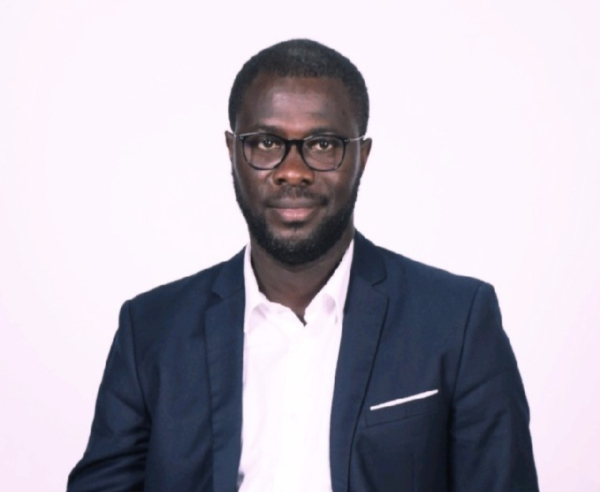Charles Kouame is the senior manager in charge of the deployment of telecom group Orange's Djoliba, a fiber-optic network that will interconnect West African countries and even more countries outside the region. With We Are Tech, he discusses the advancement of the project and its prospects.
In 2020, Orange announced Djoliba, its fiber optic network that will connect West African countries. What is the status of the project?
We have already connected six countries namely Côte d'Ivoire, Senegal, Burkina Faso, Mali, Ghana, and Nigeria. Connection is ongoing in two countries; Liberia and Guinea. We aim to build a network infrastructure that will interconnect most West African countries like the Djoliba river which irrigates a large part of the sub-region. The project was initiated because of the growing demand for broadband connections in Africa.
When Djoliba was launched in 2020, Orange invested a little over EUR 8 million. In 2022, the network, which was already congested of being greatly overrun was upgraded. To improve its capabilities, Orange made an additional investment in the Djoliba project.
Djoliba greatly contributes to the development of connectivity in Mali, Burkina Faso, and Guinea-Bissau. The infrastructure enabled many firms, notably banks operating in the sub-region, to easily interconnect with their headquarters based in Dakar or Abidjan.
The system's capacity is infinite. It can be increased by adding the appropriate equipment. To date, its equipped capacity is 300 gigabytes. The initial capacity was 100 gigabytes but an additional 200 gigabytes have been added this year.
Why was such a large project initiated just for the West African region?
West Africa hosts the largest number of Orange subsidiaries. It was thus selected to host phase 1 which targets eight countries. The second phase will target Central African countries like Cameroon and the Democratic Republic of Congo. The project will also target countries like Morroco, Niger, Mauritania, Togo, Benin, and Sierra Leone. Later, around 2025, we will even consider expanding the network to South Africa, Botswana, and Kenya. The aim is to connect the major capital cities where there is greater internet traffic even in countries where Orange is not present. With Orange group's point of presence on every continent, the Djoliba network, which is interconnected with those points of presence, gives our clients round-the-world reach.
Specifically, what will this infrastructure be used for?
Orange aims to popularize broadband connection by making major investments, which will help offer quality but most affordable internet. In under a year, for instance, Djoliba allowed the Malian subsidiary to make unlimited offers. Djoliba also helps meet the needs of subscribed operators, internet service providers, and firms.
We all noticed that the coronavirus pandemic caused a surge in telecommuting. Some of our lifestyle habits have virtually changed. To improve their operational efficiency, businesses need some online tools and quality broadband is required to access those tools.
Companies in the banking, mining, and telecom industries among others have bought Djoliba's fiber capacities to improve their collaboration with their headquarters and their access to information technologies. Djoliba is also useful for mobile operators. The pan-African network was launched to improve digital inclusion in Africa.
With the advent of Djoliba, affordable broadband connectivity has supported the development of content creation in several countries. Influencers can now give more visibility to their activities. The fiber optic network is also a great opportunity for online services because, with poor or inaccessible internet, their clients cannot buy their online services.
Is Djoliba different from similar projects like 2Africa, where Orange is also committed?
Djoliba is a network built from terrestrial and submarine fiber optic cables. When commissioned, 2Africa will be integrated into Djoliba. Djoliba's current submarine routes include the Africa Coast to Europe (ACE), South Africa Transit 3 (SAT3), or the West Africa Cable System (WACS). We have terrestrial routes secured by submarine routes. We are waiting for the arrival of the 2Africa cable to integrate it into the network and offer our customers a resilient network system. Djoliba will also help offer a secured terrestrial extension to the capacities of the 2Africa cable.
The World Bank estimates that hundreds of millions of Africans still live more than 50 km away from a fiber optic network. How does Orange intend to improve access (offer and cost) for populations with a growing need for very high-speed broadband?
Through its subsidiaries, Orange heavily invests in the development of fiber optic networks in its markets. Some of those markets, like Mali, Burkina Faso, and Guinea, are virtually virgin territories. Therefore, the investments made by Orange are huge. In the major cities of those markets, Orange is investing heavily to fulfill the strong commitment made by Orange Middle East and Africa. The aim is to bring fiber optics closer to populations and households. The various Orange Middle East and Africa subsidiaries are deploying their fiber optic infrastructure and Djoliba will allow them access to more internet capacities thanks to its network of subsea cables whose international traffic it carries. When 2Africa lands in Dakar and Abidjan, Burkina Faso and Mali will access its capacities through Djoliba, which is a secured transport system.
What is Orange's plan to meet the growing broadband connectivity demand in rural areas?
Orange wants to popularize broadband in the Middle East and Africa. It is therefore making huge investments in domestic pan-African and subsea fiber optic networks. Despite the investments made, some rural areas still have no access to broadband. To meet the demand in those areas, our state can also deploy fiber optic networks in remote areas through universal service funds.



















